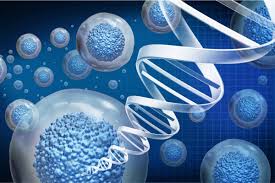 Regenerative Medicine is an ever-growing field of medical science that explores ways to resurrect or restore biological functions in patients. Regenerative Medicine has the potential to revolutionize healthcare, as it could help patients with debilitating diseases such as ALS, stroke, and multiple sclerosis regain movement and function. There are a few key questions that need to be answered before regenerative medicine can take off: How will it be able to regenerate tissue? What kind of treatments will be available? And how will we be able to monitor these treatments?I strongly suggest you to visit Beaumont regenerative medicine to learn more about this.
Regenerative Medicine is an ever-growing field of medical science that explores ways to resurrect or restore biological functions in patients. Regenerative Medicine has the potential to revolutionize healthcare, as it could help patients with debilitating diseases such as ALS, stroke, and multiple sclerosis regain movement and function. There are a few key questions that need to be answered before regenerative medicine can take off: How will it be able to regenerate tissue? What kind of treatments will be available? And how will we be able to monitor these treatments?I strongly suggest you to visit Beaumont regenerative medicine to learn more about this.
Regenerative medicine is the process of restoring and regenerating lost body parts or tissue. Regenerative medicine is used to treat a variety of medical conditions, from injuries to chronic diseases.
The benefits of regenerative medicine include:
1) Reducing costs associated with traditional healthcare methods
2) Helping patients regain their health and function faster
3) Improving quality of life for patients and their families
The process of regenerative medicine typically starts with tissue regeneration, which is the process of creating new cells from old tissue. Next, a team of scientists perform tests to determine whether the cells will be able to function properly and create new tissues. After that, they use a machine to cut down the old tissue and then add the new cells into the body.
regenerative medicine is the process of regenerating tissue and organs. Regenerative medicine has the potential to help everyone from patients with chronic diseases to athletes and military veterans.
regenerate means “to come back to life.” The use of regenerative medicine has the potential to reverse or prevent many human health problems, including leukemia, stroke, arthritis, diabetes, and even cancer.
Regenerative medicine is a field of medical research that uses cells and tissues from different parts of the body to regenerate lost function or tissue in humans or other animals. Regenerative medicine typically involves using cells taken from a patient’s own body in order to generate new skin, hair, bone, muscle, or blood vessels. This can be done through surgery or radiation therapy.
The benefits of regenerative medicine include increased lifespan and strength; improved mental health and cognitive function; and decreased rates of disease. In addition, regenerative medicine has the potential to create new immune systems that can fight against infections and virus attacks.
Regenerive medicine has been used in a number of settings such as animal studies and on people with serious conditions like leukemia and stroke. However, further research is still needed in order for it to be widely used in humans.
regenerative medicine refers to the field of medical science that is working on modifying and reversing the damage done to human cells by disease or injury. This technology is being used today in a variety of ways, including to treat diseases such as diabetes, arthritis, and cancer.
Regenerative medicine is also being used to create new tissue from scratch, which could one day lead to a cure for many chronic illnesses.
Regenerative medicine is available to everyone, and there is no need for expensive treatments or surgery. In fact, some Regenerative Medicine treatments can be as simple as taking a pill or shot: simply repairing or rebuilding cells will do the trick.
Regenerative Medicine is also the future of healthcare because it can help relieve pain and suffering from conditions like arthritis and cancer, while also increasing lifespan.
Regenerative Medicine is the future of healthcare and Regenerative Medicine is available to everyone. By understanding the process of regenerative medicine, you can take advantage of this technology for your own business. Regenerative Medicine is the future of healthcare and with proper planning and execution, you can be a part of it.
